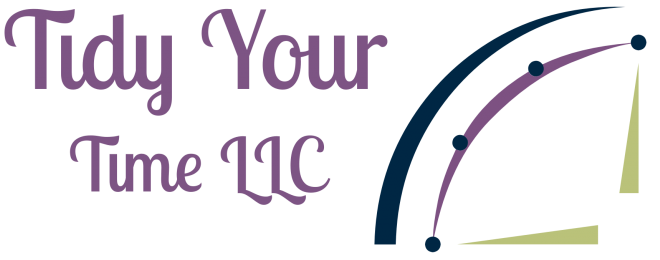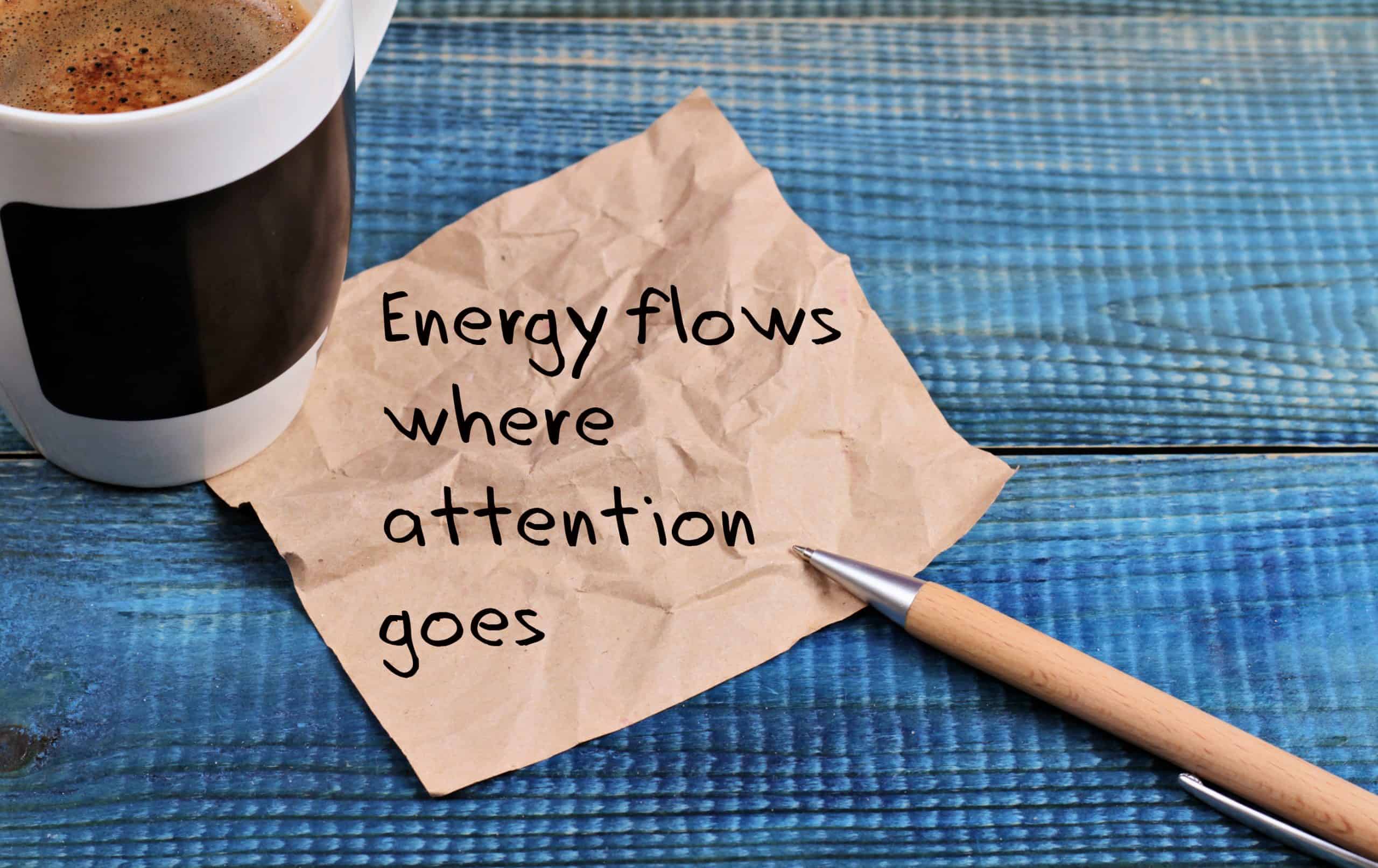You have settled down into your office chair for a productive day. You glance at your calendar to see what is on the schedule, double-check your priorities, and off you go.
“Mom, I’m hungry,” calls your son from downstairs.
This is your first interruption of the day.
After preparing him a snack, you sit back down. You review your calendar and tasks for a second time.

You get started on your highest priority task, determined to eat that frog. Fifteen minutes in your phone starts ringing.
You are really in the zone and hitting your stride, but this is a client, and you must take the call.
Your client wants to set up a time for a meeting. You schedule your client for the next day without looking at your calendar. (This will bite you in the butt later. ?)
I could go on and on just as the interruptions continue to follow you throughout your day.
It takes an average of 23 minutes and 15 seconds to return to the original task after an interruption, according to a study done by Gloria Mark at the University of California Irvine.
With the scenario above, that means you have lost almost an hour of your day.
We are always asking, “How do we gain more time?” The answer is to decrease interruptions.

We are always asking, “How do we gain more time?” The answer is to decrease interruptions.
What to do About Distractions?
The best thing you can do to beat a distraction is to plan for it.
By knowing what interruptions may surface and creating a strategy, you will negate the disruption.
For one day, write down all the interruptions you encountered. Then, complete a blueprint to either lessen the distraction or alleviate it altogether.
Here are some ways to limit interruptions:

If you have been reactive in the past, it may take some time to train your office mates or family to your new routine.
I went as far as having a sign made for my office door. One side reads, “Welcome.” The other, “Do Not Disturb.” It has decreased interruptions by 99%. ?
Why has it worked so well? I think the realization that I was working in my office hit my family members as a surprise. I do not know what they thought I was doing up here. They certainly did not know I was trying to focus.
The sign gives them a second to pause and determine if they need me at that moment. Most of the time, the sign says welcome, but my family has decided not to risk it. ?
Let’s Focus!
Now that we have those interruptions and distractions under control let’s talk about retaining focus.
There has been a rumor going around that goldfish have a higher attention span than we as humans. But a recent study done by Prezi and Kelton Research shows that our attention spans may be increasing. We are just more selective about what we give our attention.
Here are some tools you can use to increase focus.

Focus Me
Focus me is a program that you install on your phone and computer. You then set up schedules to restrict access to notifications, websites, and programs. If you prefer not to have plans automatically turn on, you can manually turn on routines, giving you a bit more control.
If you have a moment and you absolutely must access a website. (Ahem, half my business is run on Facebook.) You can always stop the routine. If you want to make doubly sure that you want to regain access, you can password protect the routine.
Pomodoro Technique
Developed by Francesco Cirillo when studying for college exams, Francesco realized he could sustain focus longer if he gave himself breaks after periods of focus. His ideal was 25 minutes of focus then a short break. After he had a few sessions, he would take a more extended break. The name of the method is derived from the tomato-shaped timer he used to track sessions. Pomodoro is a tomato in Italian.
If you try the Pomodoro Technique, you may have to build up to 25 minutes of focused time. Start with 10 minutes with a 1-minute break. That is just enough time to stand up and stretch it out. Do this for a few rounds and have a 15-minute break. Try to increase your focus time as the day goes on or the next day

Play Music
The science is in, and music does help you focus. Music engages the brain areas involved with paying attention, making predictions, and updating the event in memory according to studies done by the Stanford School of Medicine and the Department of Music.
So, gather your favorite tunes that motivate you and allow you to focus. Create a playlist of these songs and turn it on when it is time to work. A benefit of having a playlist is you will start to notice where you are in time by the passing of the songs. You will know when you hear a song that it is almost time for a break. Much better than watching the clock!
Clean Workspace
Clutter is overwhelming our visual cortex and shutting our brains down. When we see something out of the corner of our eye, our mind is processing what it is and what it means to us, not leaving brainpower for the task at hand.
Take time at the end of the day to clear the clutter in your workspace. You will thank yourself in the morning when you see your clean slate and can get straight to business at the start of the day.
Creating a plan to overcome distractions is your best bet for extended focus. With a combo of music, a clean space, and a little technology, you can make the most of the time you have.
Tell us your biggest distraction and your plan to overcome it?



Great post! This is such a broadly relevant topic these days and one that I think is important for teenagers to comprehend as well as adults. While I am not good at taking breaks at specific intervals, I do know from experience the value of taking regular breaks. Another tool for focusing that I love is brain.fm which plays music that is specifically designed to get your brain into a flow state. I’ve had great results with it. They also have music for relaxation, sleep, meditation, etc.
I really feel for parents (especially Moms) who are trying to work from home while supervising e-learning. Interruptions are a constant. Your ideas are very simple and helpful. Even if you can just get 15 minutes to focus you can get a lot done, right? So hard when little ones are needing you. Great to pre-pack the snacks and drinks… at least one thing they can help themselves to!
Great tips and resources! Thank you for sharing your personal struggles with focus – it’s always encouraging to know you aren’t the only one who has trouble with this!
No kids at home and I only answer the phone if I’m expecting a call or recognize the caller ID, but I am easily distracted by new emails. Even though I have filters to move unimportant ones out of my inbox right away, I tend to go and see what they are anyway. 🙁
My office has a door. When I can’t be disturbed it’s closed. It’s a clear sign to all not to bother me. I find music very helpful in keeping me focused.